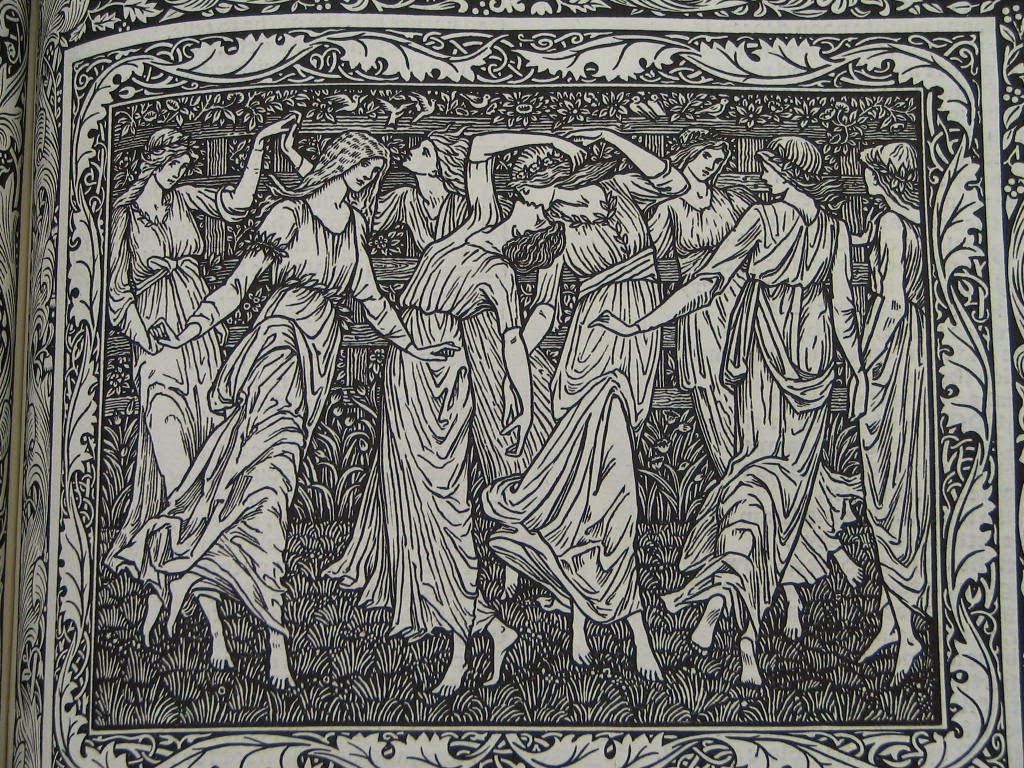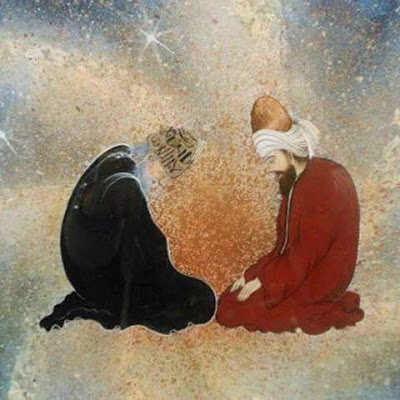The Beloved of The Beloved
A student said: “There is no way to prove who
is a friend of God and who has attained union
with God. Neither words, nor deeds, nor miracles,
nor anything else can offer proof. For words
can be mimicked, with practice. As for deeds and
miracles, there are those who can read a person’s
inmost thoughts, and display many wonders
through magic.”
Rumi asked: Do you believe in anyone or not?
The student answered: “Yes, by God. I both believe and love.”
Rumi said: Is this belief of yours, in that person, founded on proof and token? Or did you simply shut your eyes and take up that person?
The student said: “God forbid that my belief should be without proof and token.”
Rumi said: Then why do you say there is no proof or token leading to belief? You have contradicted yourself.
Another person said: “Every saint and great mystic has said, ‘I enjoy a nearness with God and Divine favor that no one else has known before.’”
Rumi answered: Who made this statement—a saint, or someone else? If it was a saint, then they knew that every saint has had this belief, so how could a saint believe they are the only recipient of Divine favor? However, if someone other than a saint made this statement, then in truth that one is the friend and elect of God, for God has kept this experience from all the saints but has not hidden it from that one.
The same person tried to support their statement with a parable: “Once there was a king with ten concubines. The concubines said, ‘We want to know which of us is dearest to the king.’
The king declared, ‘Tomorrow this ring shall be in the room of whomever I love best.’
Next day the king commanded ten rings to be made identical with that ring, and gave one ring to each maiden.”
Rumi said: The question still stands. This story provides no answer, and changes nothing. The statement, “The king loves me best,” was made by one of the ten maidens, or by someone else. If one of the ten maidens made this statement, and she knew that each of the maidens had been given a ring just like hers, then how could she feel that she was loved best? However, if this statement was made by someone other than those ten maidens, then that person was truly shown the king’s favor and special love.
Someone said: “A true lover must be submissive and abject and long-suffering.” And they listed other qualities.
Rumi said: Should the lover be like that whether the beloved wishes it or not? If the lover is this way against the desire of the beloved, then they are no lover but merely following their own desire. If the lover accepts the desire of the beloved, then when their beloved does not want them to be submissive and abject, how could they be submissive and abject? Therefore, the states affecting the lover are unknown, and we can only know how the beloved wishes us to be.
Fihi Ma Fihi - Discourse 51 - A. J. Arberry
Rumi asked: Do you believe in anyone or not?
The student answered: “Yes, by God. I both believe and love.”
Rumi said: Is this belief of yours, in that person, founded on proof and token? Or did you simply shut your eyes and take up that person?
The student said: “God forbid that my belief should be without proof and token.”
Rumi said: Then why do you say there is no proof or token leading to belief? You have contradicted yourself.
Another person said: “Every saint and great mystic has said, ‘I enjoy a nearness with God and Divine favor that no one else has known before.’”
Rumi answered: Who made this statement—a saint, or someone else? If it was a saint, then they knew that every saint has had this belief, so how could a saint believe they are the only recipient of Divine favor? However, if someone other than a saint made this statement, then in truth that one is the friend and elect of God, for God has kept this experience from all the saints but has not hidden it from that one.
The same person tried to support their statement with a parable: “Once there was a king with ten concubines. The concubines said, ‘We want to know which of us is dearest to the king.’
The king declared, ‘Tomorrow this ring shall be in the room of whomever I love best.’
Next day the king commanded ten rings to be made identical with that ring, and gave one ring to each maiden.”
Rumi said: The question still stands. This story provides no answer, and changes nothing. The statement, “The king loves me best,” was made by one of the ten maidens, or by someone else. If one of the ten maidens made this statement, and she knew that each of the maidens had been given a ring just like hers, then how could she feel that she was loved best? However, if this statement was made by someone other than those ten maidens, then that person was truly shown the king’s favor and special love.
Someone said: “A true lover must be submissive and abject and long-suffering.” And they listed other qualities.
Rumi said: Should the lover be like that whether the beloved wishes it or not? If the lover is this way against the desire of the beloved, then they are no lover but merely following their own desire. If the lover accepts the desire of the beloved, then when their beloved does not want them to be submissive and abject, how could they be submissive and abject? Therefore, the states affecting the lover are unknown, and we can only know how the beloved wishes us to be.
Fihi Ma Fihi - Discourse 51 - A. J. Arberry



Yorumlar
Yorum Gönder